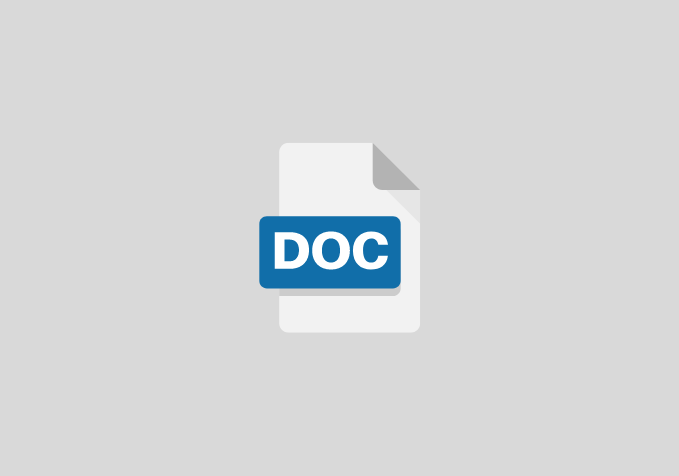Facebook literacy and Facebook information sharing behavior of undergraduate students
Chapter One
Objective of the study
The objective of the study is to investigate on facebook literacy and facebook information sharing behavior of undergraduate students. The specific objectives are;
- To ascertain the relationship between facebook literacy and undergraduate students facebook behavior
- To ascertain the relationship between facebook literacy and undergraduate students facebook information sharing
- To find out the effect of facebook literacy on undergraduate students academic performance
Chapter Two
LITERATURE REVIEW
Facebook literacy is a concept and practice necessary to help users be informed and empowered in a world increasingly populated with diverse media and messages. Abilities to access, analyze, and produce facebook messages have been conceived to be the essence of facebook literacy (Aufderheide, 1993). Facebook literacy education programs based on this principle have sought to deter harmful media effects and have demonstrated efficacy in improving media-induced beliefs, attitudes, and intentions for the better (see for a review, the study by Jeong et al., 2012).
Nobody is literally forced to join an online social network, and most networks we know about encourage, but do not force users to reveal for instance their dates of birth, their cell phone numbers, or where they currently live. And yet, one cannot help but marvel at the nature, amount, and detail of the personal information some users provide, and ponder how informed this information sharing is(Akakandelwa, 2017). Changing cultural trends, familiarity and confidence in digital technologies, lack of exposure or memory of egregious misuses of personal data by others may all play a role in this unprecedented phenomenon of information revelation. Yet, online social networks’ security and access controls are weak by design to leverage their value as network goods and enhance their growth by making registration, access, and sharing of information uncomplicated. At the same time, the costs of mining and storing data continue to decline. Combined, the two features imply that information provided even on ostensibly private social networks is, effectively, public data, that could exist for as long as anybody has an incentive to maintain it. Many entities from marketers to employers to national and foreign security agencies may have those incentives (Alhazmi, 2018)
The social media (SM) is commonly defined as a group of online media that facilitates social interaction and diffusion of information in the form of user generated contents (UGC). Conceptually and technologically built upon the Web 2.0, SM is lovechild of World Wide Web. Different forms of SM are all pervasive such as micro blogging, wikis, chat apps, social networking, social gaming, social bookmarking etc. (Metz, 2014). Facebook, You Tube, WhatsApp, Facebook Messenger, WeChat, Instagram are some of the most popular social networking sites (SNSs) worldwide (Statista, 24/11/2019). Free web space, building profiles, uploading contents, chatting and creating pages are the prominent features of SM which allow users to publish contents directly. The contents include texts, images, pictures, audio, videos and others. It blurs the traditional line between media and audience by providing platforms for common interaction and participation and thus upgrading user status from receiver to creator. It also stands distinguished from traditional media by facilitating real time two-way communication from many to many without any external control. It provides world-wide connectivity open to social interaction, contribution and participation through post, comments, reviews and feedback. Forty five percent of the world’s population is now SM users. Despite controversy around privacy, hacking, fake news and other things, the world continues to embrace it. Global digital growth shows no sign of slowing, with a million new people coming online every day. This growth is clearly fuelling the SM use.( Schulman, 2011)
Facebook can be accessed from devices with Internet connectivity, such as personal computers, tablets and smartphones. After registering, users can create a profile revealing information about themselves. They can post text, photos and multimedia which are shared with any other users who have agreed to be their “friend” or, with different privacy settings, publicly. Users can also communicate directly with each other with Facebook Messenger, join common-interest groups, and receive notifications on the activities of their Facebook friends and the pages they follow.
References
- Aihe, O. (2008, June 11). HDTV: Nigeria begins digital broadcast journey. Vanguard. Retrieved on 28/07/10 from http.//www.odilinet.com/news/source/june/11/315.html.
- Baran, S.J. (2010). Introduction to mass communication, media literacy and culture (6th ed.). New York: McGraw-Hill. BBC (2008). Nigeria satellite fails in space. Retrieved on 04/08/2010 from http://www.news.bbc.co.uk/2/hi/Africa
- Bunshak, T.(2006, April – June). Digital broadcasting is now. NBC News: 8(2).
- Dokpesi, R. (2009). “We are changing broadcasting in Nigeria. Retrieved on 27/07/10 from http://www.modernghana.com/movie/2594/1/we-are-changing.html
- Dominick, J.R. (2009). The dynamics of mass communication: Media in the digital age (10th ed.). New York: McGrawHill.
- Ekeh, D. (2009). Nigeria television at 50: Challenge of digitization. Retrieved on 27/7/10, from http://www.tvnews.com/articles_comment/ekehdesmond.html
- Encarta (2008). 1998: Television: First digital broadcasts are transmitted. Microsoft Encarta Encyclopaedia: Microsoft Corporation.
- Hanson, R.E. (2005). Mass communication: Living in a media world. New York: McGraw-Hill.
- Ibulubo, T.G.(2008). Nigeria to switch to digital broadcasting. Retrieved on 24/7/10 from http://www.africanews.com/site/nigeria_to_switch Mishkind, B.(2009). The television history. Retrieved on 03/08/10 from http://www.oldradio.com/current/bc.tv.htm
- Ocholi, D. (2009, August 16). A new dawn in the broadcast industry” Newswatch.


